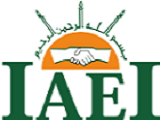Determinants of Muslim Entrepreneurs Decisions On Sharia Bank Financing and Its Effect On Business Performance
Abstract
The purpose of this study is to determine the factors that influence the decisions of Muslim entrepreneurs in using Islamic bank financing products and their influence on Business performance in MSMEs. The variables studied were religious factors, service quality, accessibility, reference groups, promotions, profit sharing systems and attitudes towards fatwas. The research method used is the factor analysis method (Exploratory Factor Analysis) and multiple linear regression. sampling technique is non-probability sampling (incidental sampling) that is equal to 70 people with assumptions considered sufficient to represent the population, while the method of collecting data through questionnaires.The results showed thatthere are 2 (two) main factors that determine the behavior of entrepreneurs in using Islamic bank financing, namely external drives (promotion, accessibility, reference groups, and attitudes to the bank system), and internal references (religion, service quality, and profit sharing system). Profit sharing system is the most important factor for customers in deciding to use Islamic bank financing products. The factors of using these financing products have a significanth effect on the performance of small and medium enterprises (SMEs) in Southeast Sulawesi, Indonesia
Keywords : Muslim Entrepreneurs, Sharia Banks and Business
Full Text:
PDFReferences
Abduh, Muhamad, et.,all. 2011. Factor Influence Depositors’ Withdrawal Behavior in Islamic Bank: A Theory of Reasonal Action. Journal of World Academy of Science, Enginering and Technology 60 2011, 285-290.
Alam, Syed Shah, et.all. 2012. Is Religiosity an Inportant Factor in Influencing the Intention to undertake Islamic Home Financing in Klang Valley?.World Applied Sciences Journal 19 (7) 1030-1041, 2012.IDOSI Publications.
Alimusa, La Ode., Rahman, A., & Ma'mum, S. Z. (2017). Kajian Pengembangan Model Balance Scorecard untuk Mengukur Dimensi Kinerja Usaha Mikro-Kecil pada pengusaha muslim di Sulawesi Tenggara. Balance, 14(02).
Al-Jeraisy, Khaledibn Abdul Rahman. 2008. Consumer Behavior an Analitical Study of The Saudi Family’s Purchase Decision. Riyadh: Reserved 3rd Edition.
Bititci, et al., .1997. Integrated performance measurement systems: a development guide", International Journal of Operations & Production Management, Vol. 17 Issue: 5, pp.522-534
Doraisamy, Barathy, et.al. 2011. A Study on Consumer’s Preferences of Islamic Banking Product and services in Sungai Petani. Academic Research International, 1 Issue 3, 2011.
Ghozali, Imam. 2006. Aplikasi Analisis Multivariate dengan Program SPSS, Cetakan IV. Semarang: Badan Penerbit Undip
Hair, Joseph F, Jr.,. Black, William C., Babin, Barry J., Anderson, Rolph E. 2010. Multivariate Data Analysis, Seventh Edition. New Jersey: Pearson Prentice Hall
Haque,Ahasanul, et. al.2009.Factor influences Selection of Islamic Banking: A Study on Malaysian Costumer Preferences. American Journal of Applied Sciences 6 (5) 922-928, 2009.
Hasan, Akif. Subhani, Muhammad Imtiaz. And Osman, Amber. 2012. Consumer Criteria for Selection of an Islamic Bank: evidence from Pakistan. Internatonal Research Journal of Finance and Economis (IRJFE), No. 94, (2012)
Kotler, Philip & Keller, Kevin Lane. 2009. Manajemen Pemasaran, Edisi 13 Jilid 1. Jakarta: Penerbit Erlangga
Kaplan, Robert, S., & Norton, David,P. (1996) : “The Balanced Scorecard: Translating Strategy Into Action”, Massachusetts,Harvard Business School Press
Oni, Emanuel O. 2012. Assessment of the Contribution of Micro Finance Institutions (MFIs) to Suistainable Growth of Small and Medium Scale Enterprises (SMEs) in Nigeria. Interdiciplinary Journal of Contemporary Research in Business.Vol. 3 N0. 9 January 2012. Ijcrb.webs.com
Oseni, U. A., Hassan, M. K., &Matri, D. (2013). An Islamic Finance Model for The Small and Medium-Sized Enterprises in France. JKAU: Islamic econ.,Vol. 26 No. 2, pp: 153-180, 2013/1434 H
Ramadan, ZeyadSaleem. 2013. Jordanian Criteria for Islamic bank Selection, Evidence from Jordanian Banking Sector. International Journal of academic research in accounting, finance and management sciences, Vol. 3. No. 3 pp. 139-145.
Sugiyono. 2012. Metode Penelitian Kuantitatif Kulaitatif dan R & D. Bandung: Alfabeta.
Yahya, Subchan. 2010. Analisis Faktor-Faktor yang Mempengaruhi Keputusan Nasabah Untuk Menggunakan Jasa Bank Syariah (Studi Kasus PT. Bank Syariah Mandiri Tbk. Cabang Pembantu Lebak). Skripsi, Jurusan Manajemen Fakultas Ekonomi dan Bisnis. UIN Syarif Hidayatullah. Jakarta.
Law of the Republic of Indonesia Number 20 of 2008 concerning Micro, Small and Medium Enterprises
DOI: http://dx.doi.org/10.24042/febi.v4i1.3823
Refbacks
Copyright (c)
Ikonomika : Jurnal Ekonomi dan Bisnis Islam is a Journal of Islamic Economics and Business, Published by the Faculty of Islamic Economics and Business at UIN Raden Intan Lampung Indonesia. This work is licensed under a Creative Commons Attribution-ShareAlike 4.0 International License.






11.png)


